Wet nurse: The mum who breastfeeds other women's babies
- Published
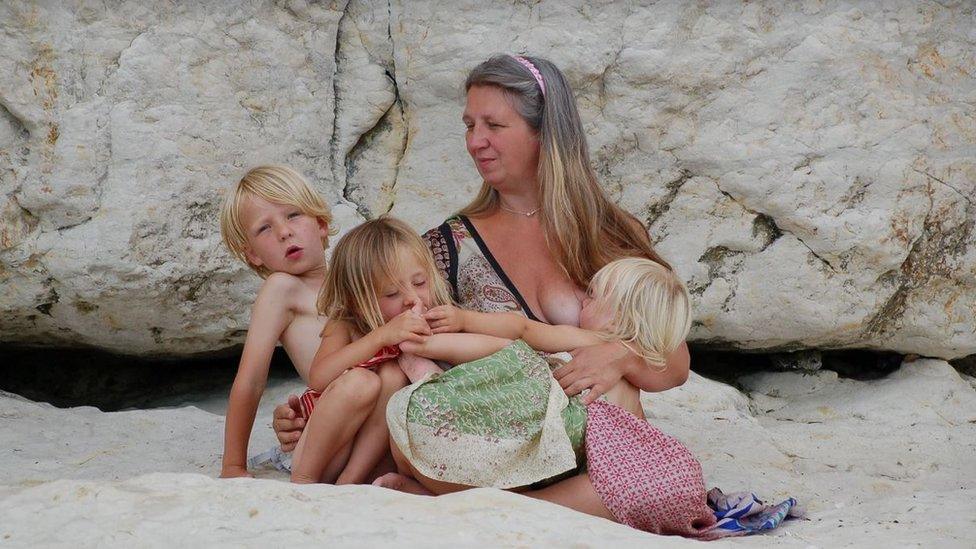
Samantha Gadsden's own children breastfed until they were four or five years old
Any woman who has ever felt judged over her decision not to breastfeed her baby will have welcomed a statement issued by the Royal College of Midwives (RCM) this week.
On Tuesday, the organisation said if a woman decides to formula-feed her baby it is her choice and must be respected.
But before the introduction of the feeding bottle in the 19th Century,, external women who were unable or unwilling to breastfeed turned to another option - a wet nurse.
Here, a mother-of-three from Caerphilly shares her experience of breastfeeding other women's babies.
Samantha Gadsden knows breastfeeding can be a contentious issue - especially when the baby you are feeding belongs to another woman.
She has been volunteering her time - and her breasts - to other women's babies since first becoming a mother herself 10 years ago.
"I can't even remember any more how many booby brothers and sisters my children have," the 47-year-old said.
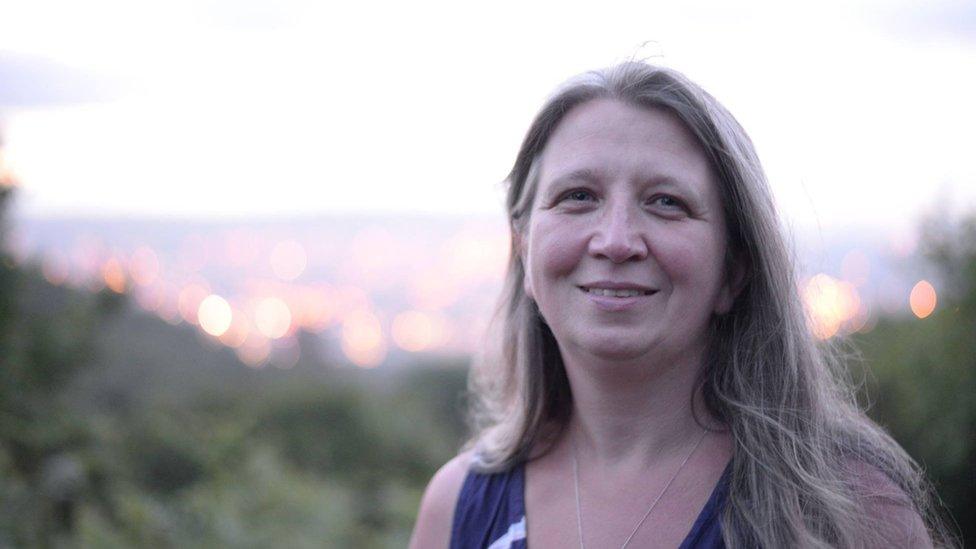
Samantha Gadsden has three children aged 10, eight and five
She first acted as a wet nurse to help out a friend whose baby was in hospital. The woman's older baby was not allowed to stay on the ward and had never used a bottle.
"She phoned me because she was pretty desperate for someone to have him.... I said 'fine but how am I going to feed him?'.
"She said 'I was kind of hoping that you'd feed him', so that's what I did."
She has also breastfed a friend's baby while babysitting: "She asked me because she knew I'd feed the baby. It's just easier because a lot of these breastfed babies aren't used to bottles."
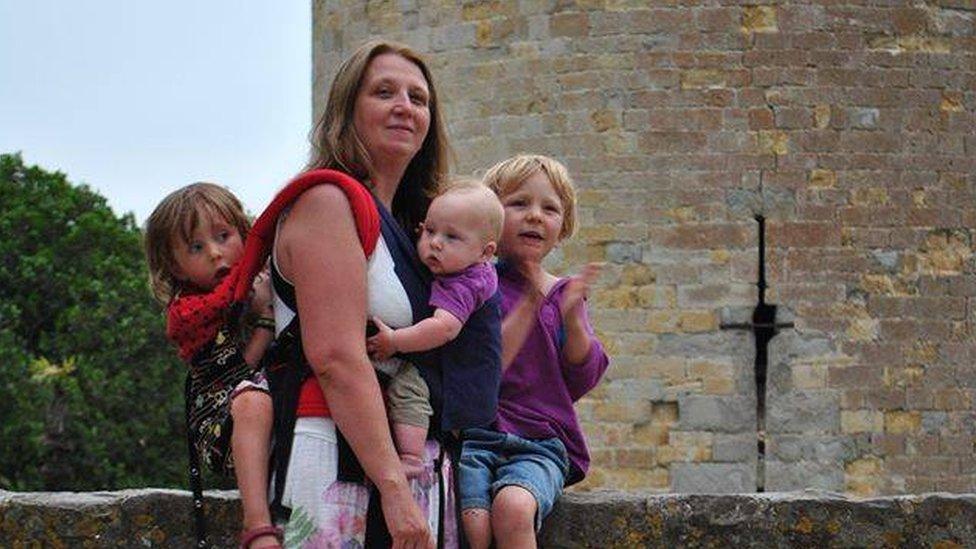
Wet nursing is more common than people think, Samantha Gadsden says
Another time she responded to a new mother who was looking for donor breast milk online: "She had twins and they were starving... She was in hospital, she'd had an operation and she couldn't feed and couldn't pump, external... they were throwing up formula.
"I said 'I haven't got a pump but I've got a pair of boobs so, if you're that desperate, I'll feed your babies'.
"We're quite firm friends now. That was a couple of years ago and we've just been on holiday."
She said she had never experienced jealousy from the mothers of the babies she has fed: "If someone's asking you to feed their babies, it's because they need help and you're giving it to them, so no."
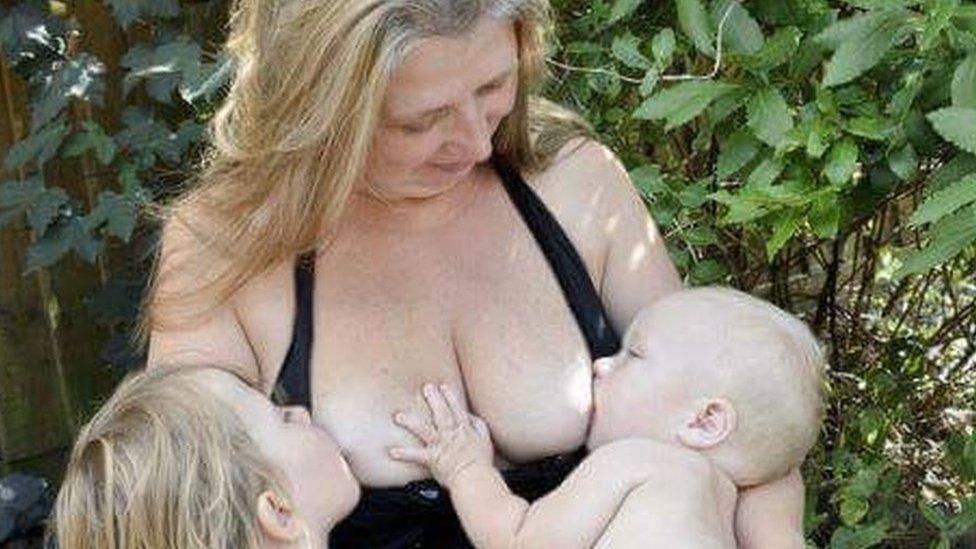
Samantha Gadsden tandem fed two of her children
Ms Gadsden works as a doula - a woman who gives support, help and advice to another woman during pregnancy and during and after the birth.
But she said the wet nursing was completely separate to her paid work and she would never accept money for feeding another woman's baby.
"It's not a professional thing, it's something I do as mother-to-mother support," she said.
"[Wet nursing] is not something that I would do for money. I don't think particularly that doing it for money is wrong, to be honest, because everything has a value, but personally, no."
She has had varied reactions when people learn about her wet nursing: "If they're in the breastfeeding community or my friends it's 'that's amazing, it's so lovely that you do that for other people' but other people are 'oh my God'.
She has had particularly strong reactions when people find out she had fed babies after meeting the mother online: "[They said] 'she didn't even know you, you could have been anything, you could have had anything, you might have had Aids'.
"For a start, most breastfeeding women have just been through the NHS screening programme themselves and they're not all out there having orgies and suddenly developing these weird diseases.
"And to a certain degree, if you're going to ask somebody to give your baby milk, there's got to be an element of trust there in the first place."
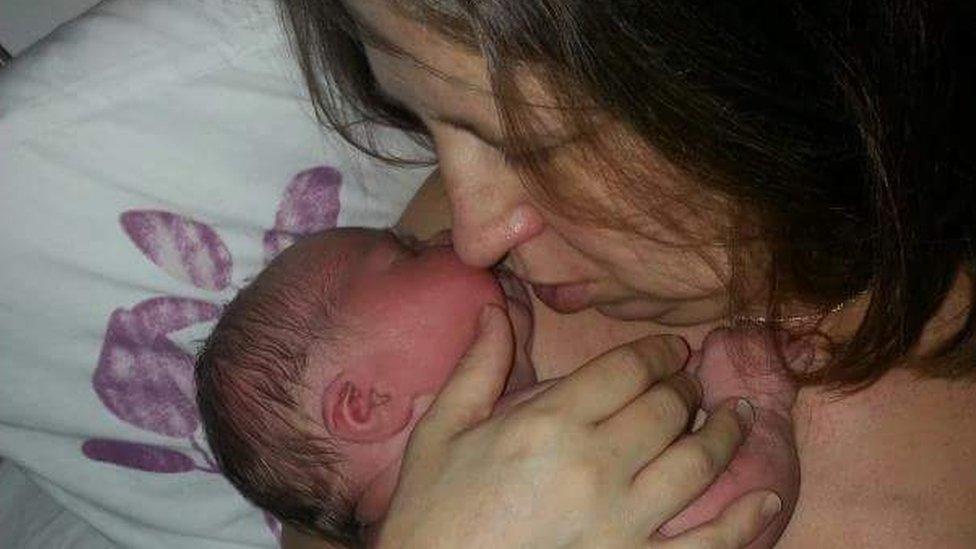
Samantha Gadsden had her youngest child at home when she was 42
She is certain there are many more wet nurses out there, and more women would use them if they knew it was an option : "I think a lot more of it goes on than we know about - people just don't always say about it."
The National Childbirth Trust said wet nursing was "not common in the UK" but acknowledged some women informally feed other women's babies.
In a statement it said: "Some people may find the subject of wet-nursing uncomfortable. There is no legal reason, however, why women who wish to wet nurse or use a wet nurse cannot do so, and NCT believes that women setting up an agreement between themselves to do this should be supported in their decision."
Public Health Wales, the body overseeing health and wellbeing in Wales, said mothers should aim to give their baby nothing but breast milk for the first six months and continue to provide it at least until their baby's first birthday.
It said if a mother's own milk was not available the next best thing would be donated breast milk, but those sharing milk should be aware of the risks which include the transmission of blood-borne viruses and other infections, the transfer of chemicals, and the bacterial contamination after collection.
- Published16 April 2018
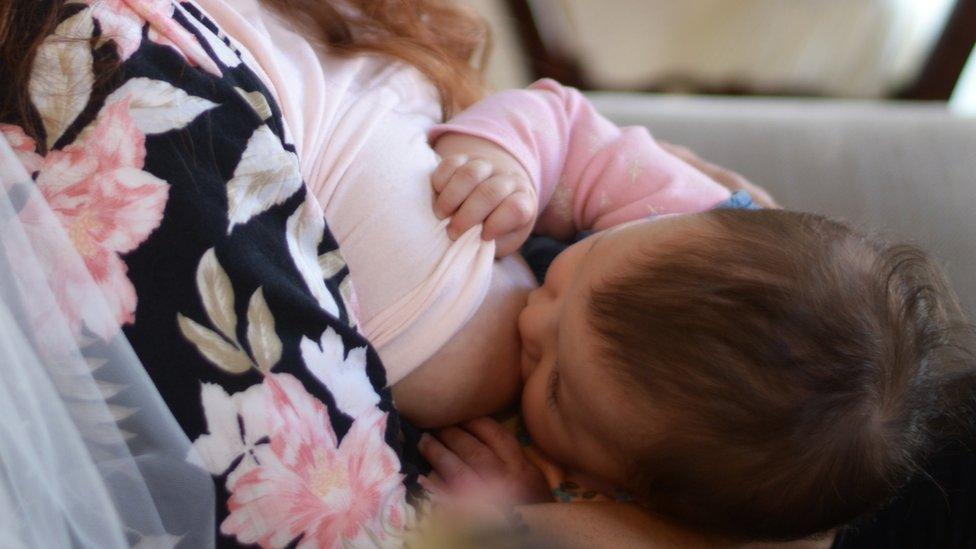
- Published12 June 2018
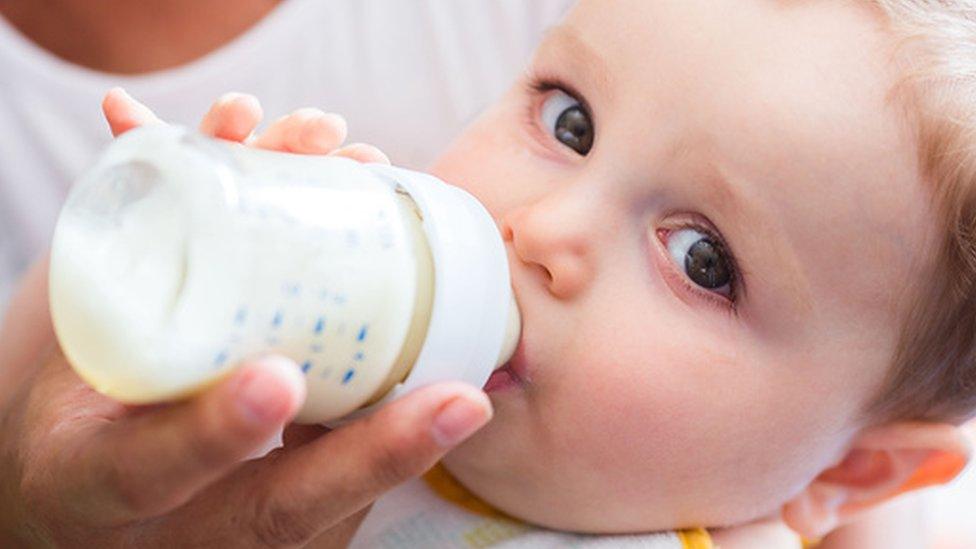
- Published30 May 2018
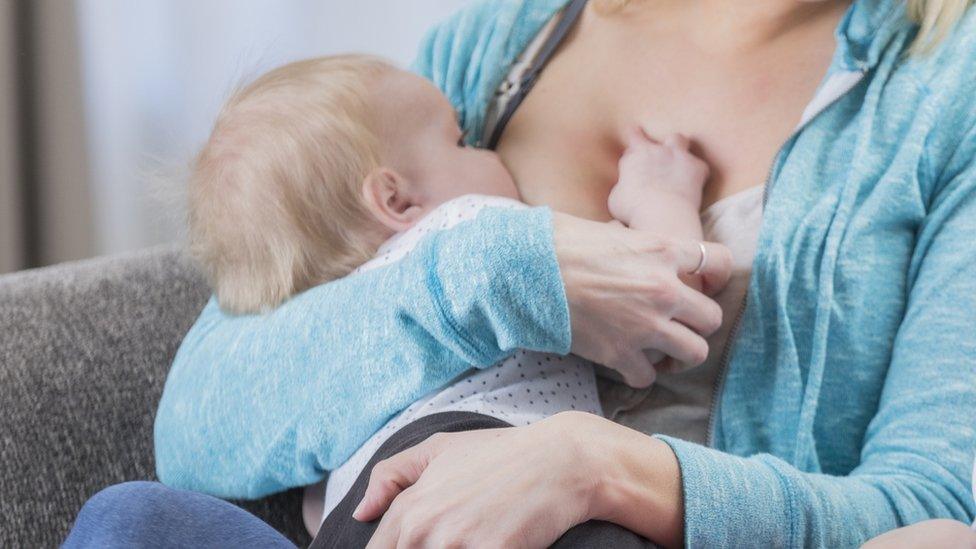
- Published1 March 2018
